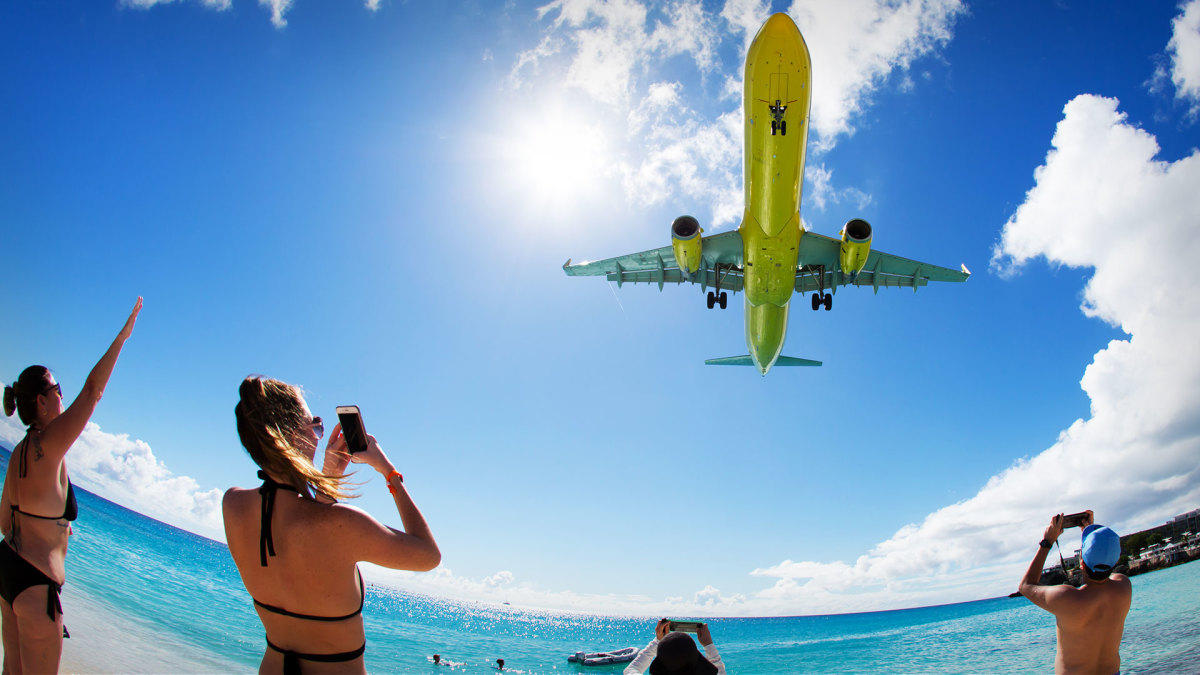
Both for families with school-age kids and college students looking to spend some time partying under the sun, Spring Break is an extremely popular (and expensive) time to travel.
Rental home management platform Vacasa recently released survey data showing that 55% of Americans plan to take a vacation in the spring while a majority of those who aren't going anywhere named cost as the primary reason.
Related: If You Want to Visit This Destination for Spring Break, It May Be Too Late
As prices for trips to popular Spring Break destinations such as Cancun and Florida's Panama City and Daytona Beach tend to spike during the month of March in general and particularly for those who start looking last-minute, some scammers have been trying to take advantage of people's desperation with "cheap deal" scams.

Shutterstock
Looking for last-minute Spring Break tickets? Be careful of scams, warns FTC
At the start of this week, the Federal Trade Commission (FTC) issued a consumer alert warning of a number of Spring Break scams using words like "last-minute deal" and "free vacation."
More Travel:
- A new travel term is taking over the internet (and reaching airlines and hotels)
- The 10 best airline stocks to buy now
- Airlines see a new kind of traveler at the front of the plane
"You might get a call about a 'free' vacation, but they say you have to pay fees," says the government agency. "Maybe you get an email for a travel package at a low, low price, but the organizer won't give you the specifics like where you'd be staying. Not only could your dream vacation turn into a nightmare, but if you pay, it'll be hard to get your money back."
While the most obvious scams come up through unsolicited calls and emails, sometimes they take an easier-to-miss form of ad pop-ups or sites that mirror the address of a genuine airline or travel platform by one letter.
Spring Break travelers have ways to recognize travel scams
Along with doing research about the company offering the deal and paying with a credit card instead of a wire transfer or gift card (credit card companies generally make more efforts to trace and reimburse fraudulent purchases), the FTC also recommends independently looking up the airlines and hotels mentioned in the promotion. Quite often, scammers will pull pictures of a beachfront hotel from the internet and match it with the name of a resort that does not exist at all.
"Don't sign or pay until you have specific details," the FTC says. "Ask for the exact address of the hotel or resort so you can research it independently. Also, get copies of the cancellation and return policies before you sign or pay."
A few days earlier, the Federal Aviation Administration (FAA) also warned of Spring Break-related airport crowding throughout the month of March. The government agency said that it expects to screen a record number of travelers passengers passing through security and will not have a lot of tolerance for those causing scenes or engaging in the kinds of debauchery commonly associated with college Spring Break trips.
"Remain patient and remember everyone around you is also on their own journey," the FAA said in a statement. "Passengers who engage in unruly behavior at the checkpoint, the gate area or in-flight may face substantial penalties and possible prosecution on criminal charges."







